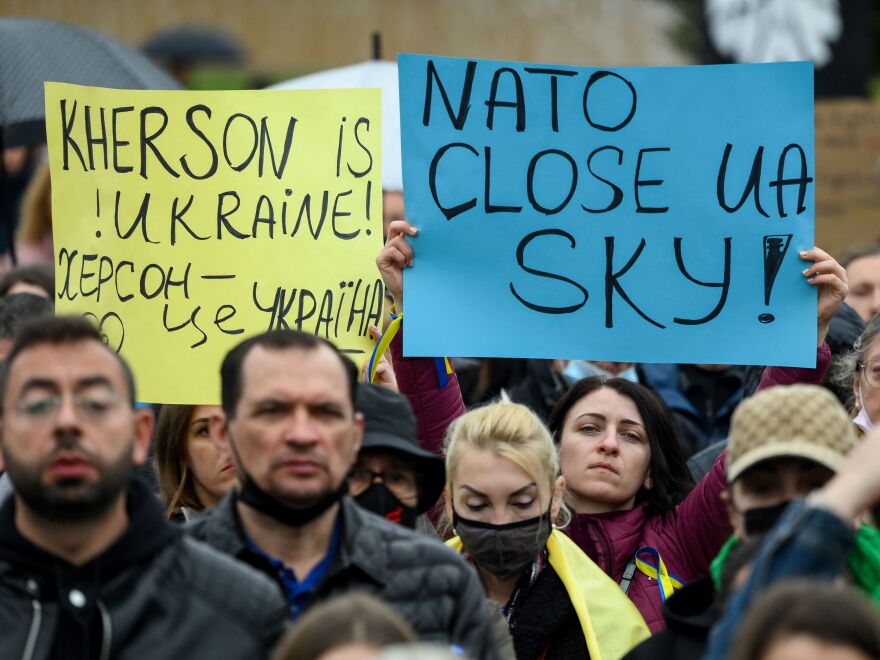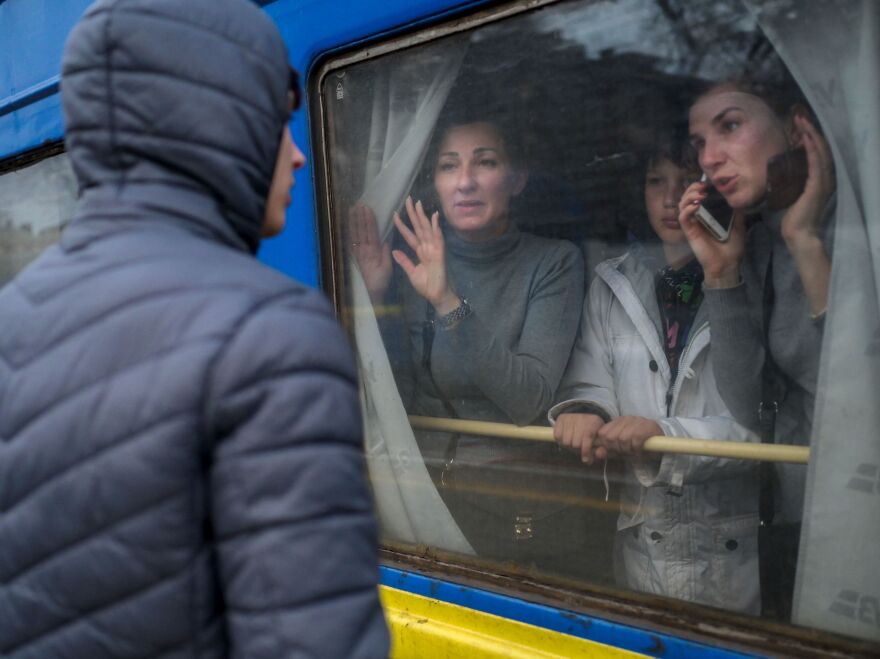A college student in the southern Ukraine city of Kherson has described his new life after Russian forces overran his home and cut internet, reporting that even finding food feels like a victory at the moment.
Kherson was the first major city to fall after the invasion began, and on Tuesday the Russian Defense Ministry said its troops had taken full control of the entire region.
For Vitality, 22, it has been a terrifying and gradual decline for his city. On March 3, the day news filtered out that the city had fallen, he sent a voice memo to NPR describing how he was feeling.
"Uh, not good," he surmised. "I mean, we are told that the Russians are setting landmines in Kherson. This is just insane. What the hell are they doing?"
Vitaliy couldn't verify the information about landmines because he saw it on TV. But this is his life now, tracking rumors and trying to sort out the truth.
The next day, on March 4, he reported that he could no longer get online.
"Today, Russians were blocking the internet and just any sort of connection at all," he said. "I only got back my Vodafone connection, which is my cell phone network, and still I have no Wi-Fi."
And, he said, he was running out of food.
"There's really not enough food right now in Kherson," he said. "And this is a very critical situation. I still have some macaroni spaghetti, but I don't have any meat, and this is bad."
A few days after the occupation, people in the city started taking to the streets. Vitaliy joined them and estimated there were about 5,000 Ukrainians there chanting the word "fascists."

"Also, today was kind of a lucky day because I happened to buy food," he said. "I bought cheese, meat and fish. You know, I never thought that I'd be so happy buying food, you know, never in my life. But yeah, it just really made my day today."
He said occasionally Russian soldiers would hand out food, but people didn't trust it and he wouldn't take it. And as the protests keep happening, Vitaliy keeps going.
"I only leave my home just to go to protest and I'll buy some groceries, but then that's it. I just sit at home all day," he said.
He watches news and doom scrolls — all day, every day.
He sent a video of a Ukrainian man climbing on top of a Russian tank in Kherson and planting a Ukrainian flag on it. Later, he said, the man disappeared and Vitaliy assumed he had been taken by Russian troops.
Last week, Ukraine's Commissioner for Human Rights released a statement saying that 400 Ukrainian citizens had already been illegally arrested. Several independent journalists in Kherson have gone missing too. This has rattled Vitaliy but has also strengthened his resolve.
"I'm like, really scared to go to a protest," he said. "But anyway, I think I'd go because ... I don't really see any other way. This is like the least that I can do."
But Vitaliy does wonder: How will this end? Will Kherson remain in Russian hands forever?
"The worst case scenario, if this occupation will remain after the war, if Kherson will be Russia, then of course I'll have to move out. Because there's no way that I'm living in Russia," he said.
"I try to be calm, but it's not easy."
Copyright 2022 NPR. To see more, visit https://www.npr.org.



